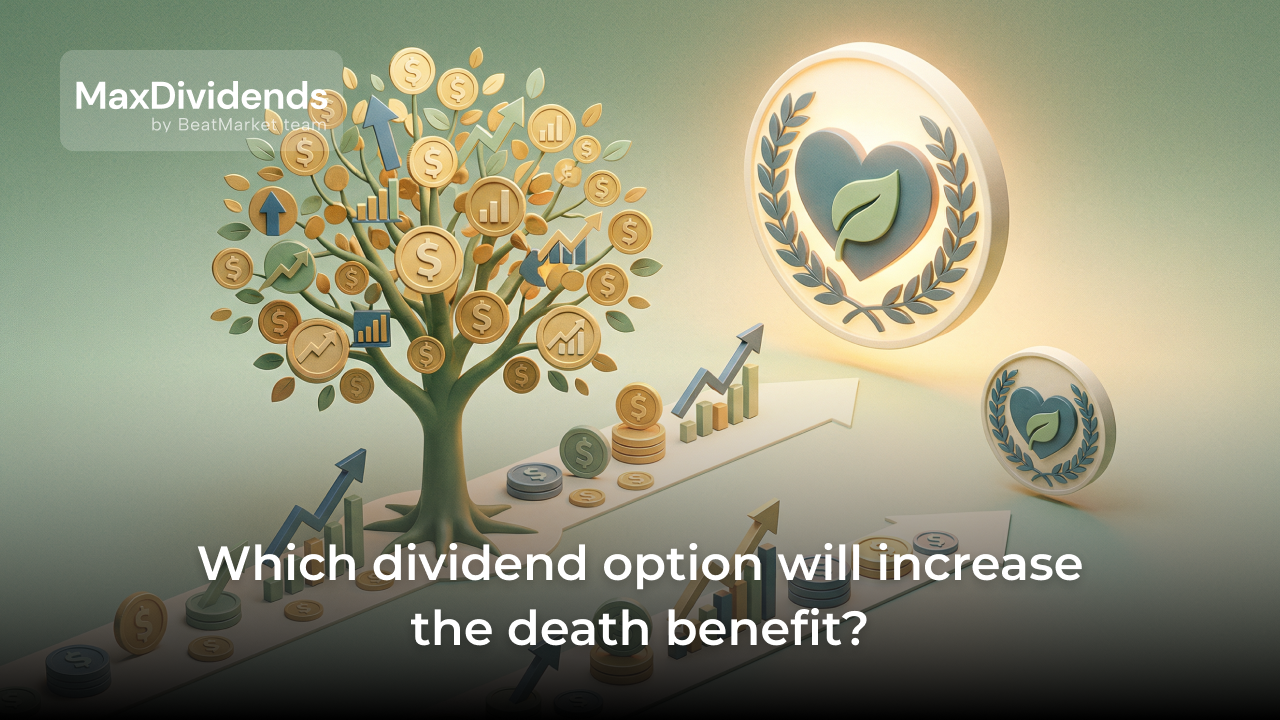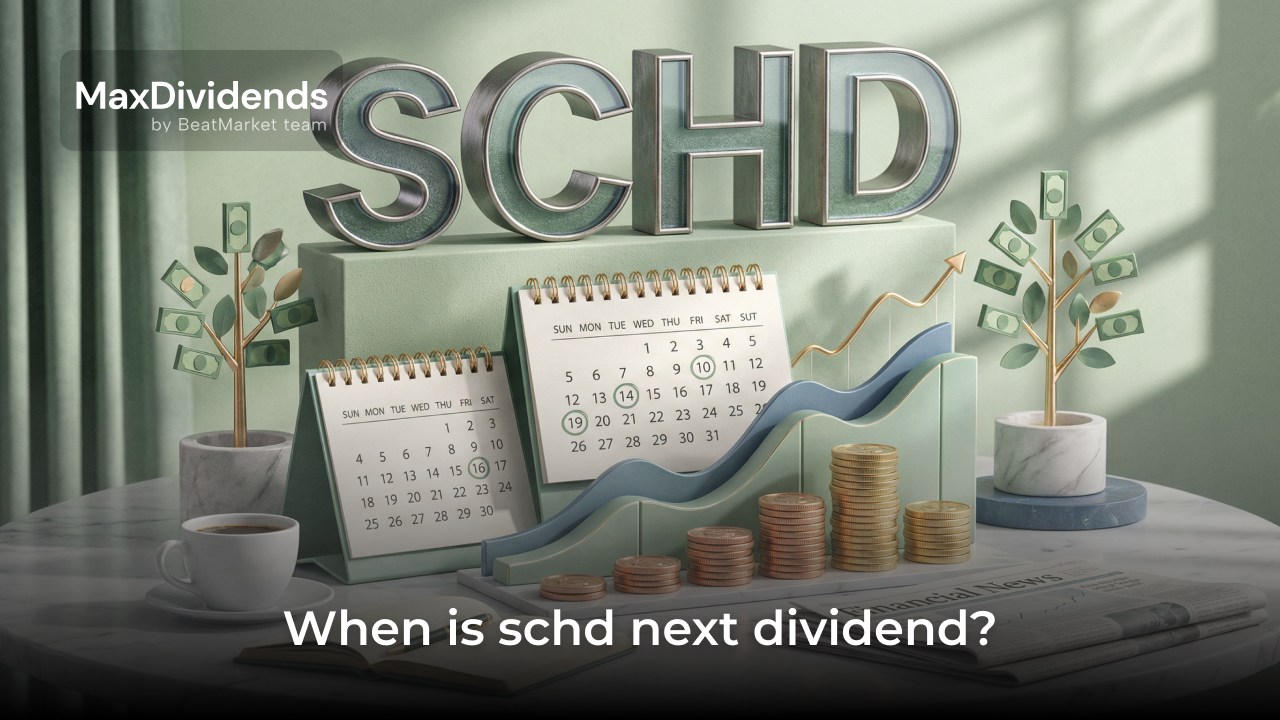Table of Contents
Do index funds pay dividends and when?
Do index funds pay dividends? Yes, most index funds pay dividends quarterly by distributing the dividends they receive from underlying companies to shareholders. Many funds also offer automatic dividend reinvestment plans (DRIPs).
If you want to learn more about dividend index fund strategies and top-performing funds — read the full article.
Growth companies can provide rapid capital appreciation. Despite this, people often prefer less volatile assets that entail periodic payments. Retirees can use generating income investment vehicles as a supplement to social benefits. Young investors are advised to consider reinvestment, which can enhance long-term returns.
Instruments that provide steady income include accounts with interest payments, bonds with coupon payments, dividend stocks, and mutual funds. The latter have a number of features and advantages.
Key Takeaways:
- Index funds are mutual funds and ETFs whose net assets track a specific index.
- Dividend funds typically focus on large companies that consistently distribute cash rewards to shareholders.
- Investments in such funds frees individuals from the need for stock-picking, while also achieving more steady income.
In this article, we will explain how do index funds pay dividends and also review 13 ETFs that are promising in terms of stability of income.
How Do Mutual Funds Pay Dividends?
The net assets of mutual index funds represent a basket of securities, which include the equities of numerous companies. They are selected to track the performance of a specific benchmark, such as the S&P 500 index or Dow Jones. This helps in diversifying risk associated with individual companies.
Like any shareholder, the fund receives a share of the company’s profits. In some cases, this will be tax-free income, which enhances tax efficiency. This answers the question of how do index funds pay dividends—they distribute the funds received from net assets. A small portion of the income goes toward covering expenses related to management.
Another popular question is how often do index funds pay dividends. Periodic dividend payments occur on a quarterly basis or at another frequency according to the dividend payment plan. Many mutual funds offer a dividend reinvestment plan (DRIP), allowing the proceeds to be used to purchase other securities. As a result, the investor’s capital grows.
What to look for in dividend index funds
Most capital strategies involve creating a diversified portfolio. Before purchasing securities, it is necessary to calculate the optimal asset allocation and find a trade-off between returns and risk. Next, specific investment instruments are selected.
A common question is do index funds give dividends. The answer is affirmative. Funds are compared based on the following metrics:
- dividend yield;
- management Expense Ratios (MERs);
- risk level;
- tracking error, and asset coverage.
In terms of management style, all funds can be divided into two types. The first type consists of index funds with passive management, while the second type involves active management. The first type primarily includes ETFs, which have lower turnover and trading costs. Online discount brokerages can be used to purchase them.
Dividend vs. Index Investing
Dividend investing involves cash distributions among companies that regularly pay their shareholders. Index investing is the practice of following a market index.
The choice of management style depends on investment goals and risk tolerance. Both strategies have their advantages and can be implemented within tax-free savings accounts, such as a registered education savings plan and others.
Funds provide a higher degree of diversification and reduce portfolio risk with a small amount of capital. A common question among novice investors is: do index funds pay dividends? Yes, most ETFs distribute a portion of their profits from net assets to their shareholders.
Why invest in dividend index funds?
For passive funds, high-quality management is not crucial. The manager’s task is to replicate the index rather than seek investment ideas. As a result, fees are significantly lower.
Index funds are typically preferred by income-seeking investors who aim to achieve returns through overall stock market growth. These assets are suitable for individuals looking for solid dividend yields along with a high level of diversification.
The presence of regular cash distributions enhances the overall return of the portfolio. Statistics show that capital gains from stock appreciation account for approximately two-thirds of the total return from investments in the broad market. The remaining portion of investment income is obtained through the distribution of the net profits of companies. Therefore, it is essential to determine: does an index fund pay dividends before purchasing its securities.
Dividend paying index funds come in two types. The first type aims to maximize return expectations of the yields. The second type focuses on gradual growth. These funds track indices that include quality stocks and value stocks. As a result, they are more dependable and have greater risk tolerance.
Dividend index funds are long-term investments
Among the key differences of funds is that they are less volatile. Despite this, there are short-term market movements in quotes. To avoid market losses, it is important to hold shares for an extended period. In the long run, the market tends to grow, and the investor faces lower risk.
Additionally, over a long horizon, one can earn through the compounding of dividends. This operates similarly to compound interest on a bank account. Therefore, the question: do stock index funds pay dividends is important for investors.
Another advantage of a long-term strategy is that it is tax-efficient. Qualified dividends are taxed at the capital gains rate.
Top dividend index funds and ETFs
Below is a comparison table of ETFs with key metrics.
| Ticker | Dividend Yields, % | Expense Ratios, % | Risk Levels (Morningstar) |
| VYM | 3,01 | 0,06 | Below average |
| VIG | 1,81 | 0,05 | Low |
| SPHD | 3,26 | 0,3 | Average |
| HDV | 3,77 | 0,08 | Below average |
| NOBL | 2,32 | 0,35 | Average |
| SCHD | 3,49 | 0,06 | Below average |
| VEIPX | 2,87 | 0,27 | Below average |
| DGRO | 2,46 | 0,08 | Below average |
| DGRW | 1,61 | 0,28 | Below average |
| PRDGX | 1,01 | 0,92 | Low |
| SVAAX | 3,45 | 1,17 | Below average |
| INUTX | 2,71 | 1,07 | Below average |
| NBHAX | 1,96 | 1,09 | Below average |
The review includes funds with active management. However, dividend index funds are more advantageous in terms of expenses and fees.
1. Vanguard High Dividend Yield ETF (VYM) / Admiral Shares (VHYAX)
- Expense ratio – 0.06%.
- 30 day SEC yield – 2,53%.
VHYAX tracks the FTSE High Dividend Yield Index. The exchange-traded fund (ETF) VYM includes the highest-yielding stocks, excluding REITs. In addition to the ETF, the strategy is presented in the form of a mutual fund. Its expense ratio is 0.08%, and the minimum investment is $3,000.
2. Vanguard Dividend Appreciation ETF (VIG) / Admiral Shares (VDADX)
- Expense ratio – 0.05%.
- 30 day SEC yield – 1,66%.
VIG tracks the Spliced S&P U.S. Dividend Growers Index (NASDAQ US Dividend Achievers Select Index until September 19, 2021). The ETF invests in quality companies that have demonstrated dividend growth for 10 consecutive years. This index fund shows the lowest cost of management among those presented.
The analogous mutual fund has an expense ratio of 0.07%. The minimum investment is $3,000.
3. Invesco S&P 500 High Dividend Low Volatility ETF (SPHD)
- Expense ratio – 0,3%.
- 30 day SEC yield – 4,68%.
SPHD replicates the S&P 500 Low Volatility High Dividend Index. The net assets of this ETF consist of the 50 least volatile stocks among high dividend securities. The fund pays monthly dividends.
4. iShares Core High Dividend ETF (HDV)
- Expense ratio – 0,08%.
- 30 day SEC yield – 3,35%.
HDV tracks the Morningstar Dividend Yield Focus Index. The assets of this ETF include high-yielding stocks, primarily from energy, consumer staples, and healthcare sectors.
5. ProShares S&P 500 Dividend Aristocrats ETF (NOBL)
- Expense ratio – 0,35%.
- Yield – 1,97%.
NOBL invests in companies that have demonstrated consecutive dividend increases for at least 25 years. The S&P 500 Dividend Aristocrats Index, which the ETF tracks, is equal-weighted. The share of each participant does not depend on market capitalization.
6. Schwab U.S. Dividend Equity ETF (SCHD)
- Expense ratio – 0,06%.
- 30 day SEC yield – 3,78%.
SCHD tracks the Dow Jones U.S. Dividend 100 Index. The net assets of this ETF, offered by Charles Schwab, are selected based on a variety of criteria. The primary consideration is the history of 10 years dividend payments. Additionally, companies are compared based on parameters such as:
- free cash flow to debt ratio;
- return on equity;
- dividend growth rate.
SCHD offers a dividend yield that is above average. The companies included in it are highly likely to increase shareholder rewards.
7. Vanguard Equity Income Fund Investor Shares (VEIPX)
- Expense ratio – 0,27%.
- 30 day SEC yield – 2,41%.
VEIPX has been in existence since 1988. The benchmark it tracks is the Spliced Equity Income Index. The net assets of this mutual fund include shares of established U.S. companies that offer consistent dividend payers. VEIPX focuses exclusively on high-yield companies. However, these are slow-growth assets. The fund is suitable for investors who are aiming for passive income rather than stock price gains.
The fund pays quarterly dividends. The minimum investment is $3,000. A similar strategy is offered through the Vanguard Equity Income Fund Admiral Shares (VEIRX), which has the advantage of a lower expense ratio (0.18%).
8. iShares Core Dividend Growth ETF (DGRO)
- Expense ratio – 0,08%.
- 30 day SEC yield – 2,18%.
DGRO tracks the Morningstar US Dividend Growth Index. The ETF includes companies that have increased shareholder payouts for at least five consecutive years. Additional criteria include a positive consensus earnings forecast and a payout ratio of less than 75%. The index excludes the highest-yielding stocks, REIT funds, and securities that provide non-qualified dividends.
9. WisdomTree U.S. Quality Dividend Growth Fund (DGRW)
- Expense ratio – 0,28%.
- 30 day SEC yield – 1,58%.
The ETF focuses on quality businesses. Key selection criteria include return on equity (ROE) and return on assets (ROA). Additionally, earnings growth expectations are taken into account. The fund tracks the WisdomTree U.S. Quality Dividend Growth Index. The components of this index are weighted by yield.
10. T. Rowe Price Dividend Growth Fund (PRDGX)
- Expense ratio – 0,64%.
- 30 day SEC yield – 0,92%.
PRDGX is a mutual fund targeting large and midsized companies. The main criterion is increasing dividends as an indicator of financial health. It is expected that reliable payers will also demonstrate growth in their business in the future. The fund includes companies with quarterly dividends and a good track record of payments. The minimum initial investment is $2,500.
11. Federated Strategic Value Dividend Fund (SVAAX)
- Expense ratio – 1,17%.
- 30 day SEC yield – 3,23%.
SVAAX invests in higher-dividend-paying stocks. The main benchmarks are the Dow Jones U.S. Select Dividend Index and the S&P 500, but the fund does not replicate them completely. The primary goal is to generate income through long-term capital appreciation and dividend growth potential. In addition to U.S. shares, the net assets include foreign securities.
SVAAX has the highest expense ratio in the review. The net expense ratio is 1.06%, while the gross expenses are 1.17%. An important factor is the monthly dividends. The fund is suitable for investors looking for a stable source of passive income.
12. Columbia Dividend Opportunity Fund (INUTX)
- Expense ratio – 1,07%.
- 30 day SEC yield – 2.16%.
The diversified portfolio of Columbia Threadneedle Investments includes U.S. securities, foreign securities, and derivatives. The net assets of the fund consist of both common stocks and preferred stocks. The main selection criterion is consistent and increasing dividends.
INUTX was established in 1988. The minimum investment is $2,000. A key drawback is the high expense ratio. The primary benchmark is the Russell 1000. A key advantage is diversification through foreign securities.
13. Neuberger Berman Equity Income Fund (NBHAX)
- Expense ratio – 1,09%.
- 30 day SEC yield – 1,50%.
Portfolio managers of NBHAX select high-dividend-paying equities and assets capable of providing significant capital appreciation. Stable dividend income is ensured through the following components:
- common stocks, including those from the utilities sector and real estate investment trusts (REITs);
- convertible preferred stock;
- other convertible securities (such as bonds);
- derivative instruments.
The minimum initial investment is $1,000. Similar to the previous fund, NBHAX has a high expense ratio. It is also important to consider a front-end load of 5.75%.
Different Types of Dividend ETF Strategies
Considering how do index funds pay dividends, there are 7 dividend ETF strategies to highlight:
- High dividend yield ETFs. They aim to maximize current payouts.
- Dividend growth ETFs. They target the consistent increase of income by investing in companies with a long track record of payouts.
- Covered call ETFs. They operate not only with securities but also with options.
- Quality dividend ETFs. They select assets that can provide capital appreciation alongside current payouts.
- International dividend ETFs. They are used to achieve a diversified portfolio not only by issuers but also by geographic region.
- Sector-specific dividend ETFs. They allow investors to bet on the growth of a specific sector.
- Total return dividend ETFs. They provide a balance between current income and rapid capital appreciation.
It is important to remember that an extremely high dividend yield is associated with the risk of declining share prices and reduced payouts in the future.
Another significant aspect of dividend investing is dividend DRIPs. If an individual does not need passive income, it may be more beneficial for them to receive additional shares.
Comparing Dividend ETFs to Individual Dividend Stocks
Dividend ETFs provide a simple way to achieve diversification. The drawbacks include management fees and a lack of control over the underlying companies.
An alternative is to invest in individual shares. Basic recommendations for selecting shares for long-term success include:
- They should be holdings with a long history of payouts. Industry prominence and market dominance are important.
- The company should demonstrate dividend growth, have moderate payout ratios, and possess strong cash flows.
- Stable sectors such as financials, banks, utilities, and telecommunications are preferred.
If the portfolio includes Canadian dividend stocks, it is necessary to remember the withholding tax applied at source.
FAQs About Dividend Index Funds
What Is a DRIP?
A DRIP is a program that allows mutual fund shareholders to automatically reinvest their received payouts.
How Do Dividends Work?
A common question among beginners is how do index funds pay out money from index funds. The principle is the same as with individual companies. On a specific day, a list of shareholders is compiled, and profits will be distributed among them.
Are there dividend-paying index funds?
Yes, many funds pay rewards to their security holders.
Do Vanguard index funds pay dividends?
Yes, Vanguard pays dividends to its shareholders on a quarterly basis.
Are dividend index funds risky?
Yes. Any investments come with risk. There are two potential negative events. The first is a decrease in passive income provided by the fund. The second is a decline in the market value of the fund’s securities.
Which dividend fund is best?
It depends on the investment strategy. One person may prefer a fund with high yields, while another may opt for one with steadily growing payouts.
Does an S&P 500 index fund pay dividends?
Yes, index funds pay dividends to shareholders.
Do ETF index funds pay dividends?
Generally speaking, many index ETFs make regular payouts (usually on a quarterly basis). However, if you ask do all index funds pay dividends, the answer is no.
The Bottom Line
Regular dividend income is an important component of the overall return on investments. For investors wondering ‘do index funds pay dividends?’, the answer is yes, and the money can be directed toward reinvesting, which creates a compounding effect and accelerates capital growth. This, in turn, leads to higher revenue.
However, receiving payouts carries tax consequences. Accounts that offer benefits also impose certain limitations. Another downside is the source of payouts. Shareholders are given a portion of current income and retained earnings from previous years. If a company decides to forgo dividends and reinvest the saved profit into its growth, this can contribute to stock prices appreciation.
Therefore, a common recommendation from wealth management specialists is to create a diversified portfolio. It should include not only reliable dividend payers but also growth companies.
Article Sources
- Investopedia. Dividend ETFs vs. S&P 500: Where Should You Invest?
- Vanguard, Personal investors. Vanguard ETFs
- iSHARES. FIND iSHARES FUNDS
You Might Also Like
- How to Find and Calculate Dividends: Step-by-Step Guide
- Best Undervalued Retail Dividend Stocks for Steady Income
- Deposit Dividends vs. Regular Dividends: Key Differences
- Reinvested Dividends and Taxes: What You Need to Know






